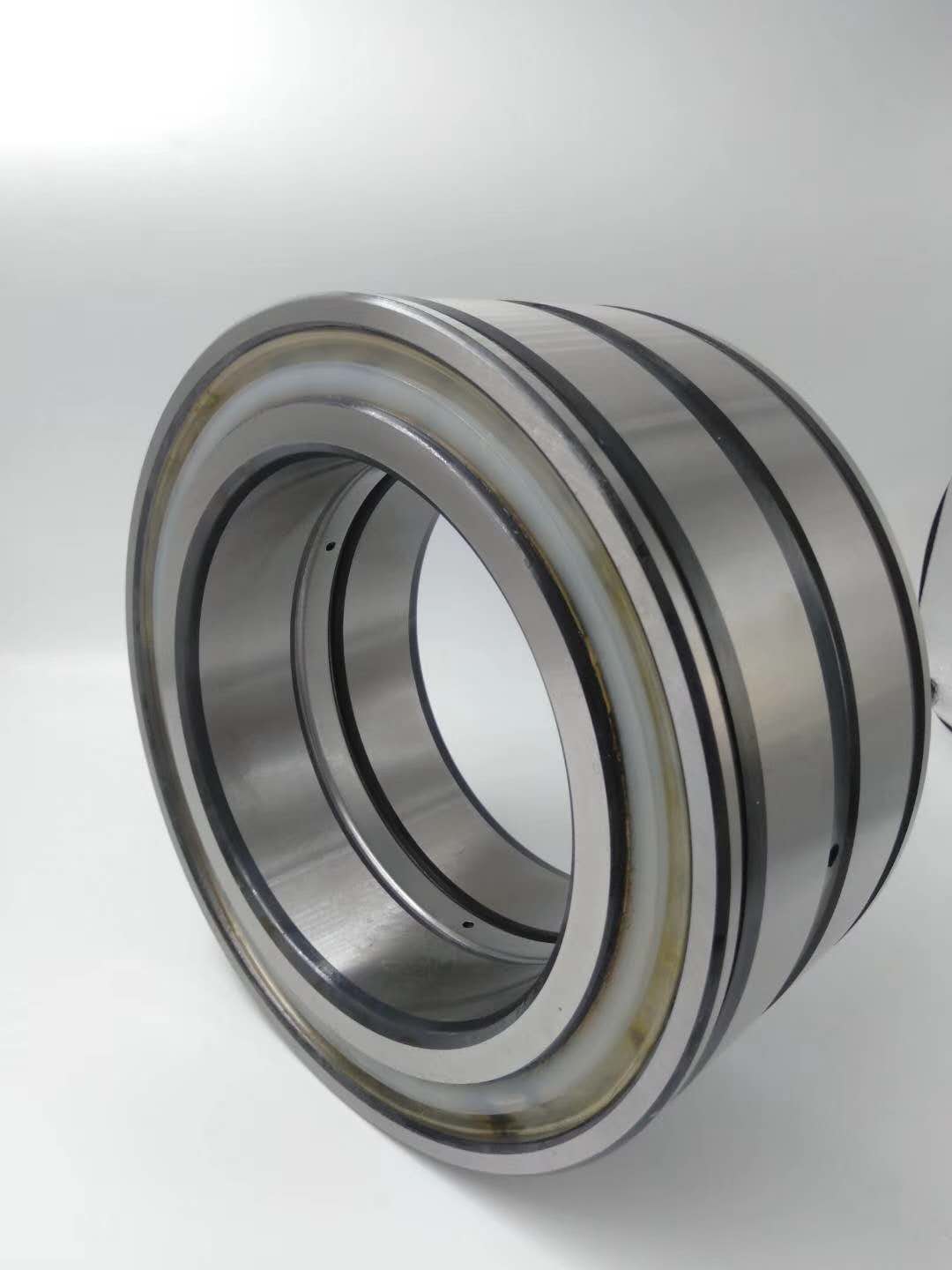CONTACT US
Zhejiang waxing electromechanical co.LTD.,Factory located in Shandong,Headquarters located in Zhejiang,China.
1. Common full complement cylindrical roller bearings
1. Single row full complement cylindrical roller bearings
NCF
NJG
2. Double row full complement cylindrical roller bearings
NNCL
NNCF
NNC
NNF
2. Uncommon full complement cylindrical roller bearings
1. Outer spherical full complement cylindrical roller bearings
2. CARB toroidal roller bearings
Full complement cylindrical roller bearing applications
Full complement cylindrical roller bearings can accommodate the largest number of rollers because they have no cage, so they are suitable for bearing extremely heavy radial loads. In addition to radial loads, they can also bear a certain axial load. However, its allowed operating speed is much lower than that of cylindrical roller bearings with cages. Single row full complement cylindrical roller bearings also allow an angular error of a few minutes of arc between the inner and outer rings.
Full complement cylindrical roller bearings are designed to carry heavy loads. Under the same width, compared with traditional bearings with cages, this kind of bearing has extremely high load-bearing capacity and a small radial cross-section, which can save space, but the rotation speed is relatively low.
In order for the bearing to work normally, the bearing must bear a certain minimum load under continuous operation, that is, C/P<25. Otherwise, wear will be aggravated due to insufficient lubrication and high-speed operation. All multi-row cylindrical roller bearings have a lubrication groove and lubrication hole on the outer ring.
 Installation and usage precautions
Installation and usage precautions
1. The installation of bearings must be carried out in dry and clean environmental conditions. Before installation, the machining quality of the mating surfaces of the shaft and housing, the end faces of the shoulders, grooves and connecting surfaces should be carefully checked. All mating connection surfaces must be carefully cleaned and deburred, and the unmachined surfaces of castings must be clean of molding sand.
2. Bearings should be cleaned with gasoline or kerosene before installation, dried before use, and ensure good lubrication. Bearings are generally lubricated with grease, but can also be lubricated with oil. When using grease lubrication, you should choose grease with excellent properties such as impurity-free, anti-oxidation, anti-rust, and extreme pressure. The grease filling amount is 30%-60% of the volume of the bearing and bearing box, and should not be too much. The double-row tapered roller bearings with sealed structure and the water pump shaft coupling bearing have been filled with grease and can be used directly by the user and cannot be cleaned.
3. When installing the bearing, uniform pressure must be applied on the circumference of the end face of the ferrule to press the ferrule in. Do not directly hit the end face of the bearing with tools such as a hammer to avoid damaging the bearing. When the interference is small, press the end face of the bearing ring with a sleeve at normal temperature, tap the sleeve with a hammer, and press the ring evenly through the sleeve. If installed in large quantities, a hydraulic press can be used. When pressing in, ensure that the end face of the outer ring is pressed tightly against the end face of the housing shoulder, and that the end face of the inner ring is pressed tightly against the end face of the shaft shoulder. No gaps are allowed.
4. When the interference is large, oil bath heating or sensor heating can be used to install the bearing. The heating temperature range is 80℃-100℃, and the maximum cannot exceed 120℃. At the same time, nuts or other appropriate methods should be used to tighten the bearing to prevent the bearing from shrinking in the width direction after cooling and causing a gap between the ferrule and the shaft shoulder.
5. The clearance should be adjusted at the end of the installation of single row tapered roller bearings. The clearance value should be specifically determined according to different operating conditions and the size of the interference fit. If necessary, tests should be conducted to confirm. The clearance of double row tapered roller bearings and water pump shaft bearings has been adjusted before leaving the factory, and no further adjustment is required during installation.
6. After the bearing is installed, a rotation test should be carried out. First, it should be used on the rotating shaft or bearing box. If there is no abnormality, then run with power at no load and low speed. Then, depending on the operation condition, the rotation speed and load should be gradually increased, and the noise, vibration and If the temperature rises and abnormality is found, the operation should be stopped and checked. It can be put into use only after the operation test is normal.
Copyright © 2025 Zhejiang waxing electromechanical co.LTD. | All Rights Reserved Design
Hello, please leave your name email or WhatsApp here before chat online so that we won't miss your message and contact you smoothly.